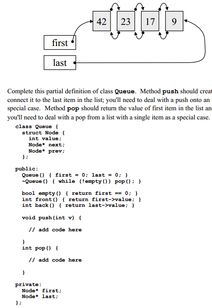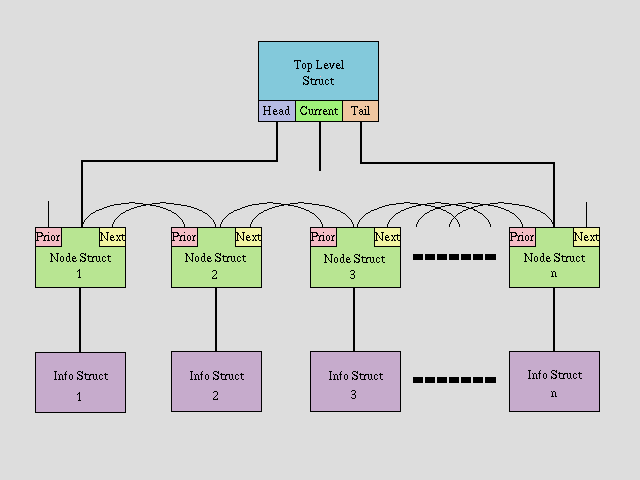Doubly Linked Lists: A Comprehensive Guide
Doubly linked lists are a fundamental data structure in computer science, offering a versatile way to manage collections of elements. Unlike singly linked lists, which have a single pointer to the next node, doubly linked lists include both a forward and a backward pointer, allowing for efficient traversal in both directions. In this article, we will delve into the intricacies of doubly linked lists, exploring their definition, implementation, advantages, and applications.
What is a Doubly Linked List?

A doubly linked list is a sequence of nodes, where each node contains a data field and two pointers: one pointing to the next node and the other pointing to the previous node. This bidirectional nature allows for easy navigation through the list, making it a powerful tool for various programming tasks.
Implementation of a Doubly Linked List

Implementing a doubly linked list involves creating a node structure and a list structure. The node structure typically contains a data field, a pointer to the next node, and a pointer to the previous node. The list structure maintains a reference to the head and tail nodes of the list.
Here’s a basic implementation in Python:
class Node: def __init__(self, data): self.data = data self.next = None self.prev = Noneclass DoublyLinkedList: def __init__(self): self.head = None self.tail = None def append(self, data): new_node = Node(data) if self.head is None: self.head = new_node self.tail = new_node else: self.tail.next = new_node new_node.prev = self.tail self.tail = new_node def prepend(self, data): new_node = Node(data) if self.head is None: self.head = new_node self.tail = new_node else: new_node.next = self.head self.head.prev = new_node self.head = new_node def traverse_forward(self): current = self.head while current: print(current.data) current = current.next def traverse_backward(self): current = self.tail while current: print(current.data) current = current.prevAdvantages of Doubly Linked Lists

Doubly linked lists offer several advantages over other data structures, such as singly linked lists and arrays:
- Bidirectional Traversal: As mentioned earlier, the bidirectional nature of doubly linked lists allows for efficient traversal in both directions, which can be beneficial in certain scenarios.
- Insertion and Deletion: Inserting and deleting nodes in a doubly linked list is generally faster than in a singly linked list, as we can easily navigate to the desired position using the forward and backward pointers.
- Memory Efficiency: Doubly linked lists can be more memory-efficient than arrays, as they only allocate memory for the nodes that are actually used.
Applications of Doubly Linked Lists
Doubly linked lists find applications in various domains, including:
- Memory Management: Doubly linked lists are commonly used in memory management systems to keep track of allocated and deallocated memory blocks.
- Graphs: In graph theory, doubly linked lists can be used to represent adjacency lists, which are used to store the neighbors of a vertex in a graph.
- Operating Systems: Doubly linked lists are used in operating systems for managing processes, files, and other system resources.
Conclusion
Doubly linked lists are a versatile and powerful data structure that offers several advantages over other data structures. By understanding their definition, implementation, and applications, you can leverage this data structure to solve various programming challenges. Whether you’re working on memory management, graph algorithms, or operating systems, doubly linked lists can be a valuable tool in your arsenal.
| Feature | Singly Linked List | Doubly Linked List |
|---|---|---|
| Traversal | Unidirectional | Bidirectional |
| Insertion/Deletion | Efficient at tail |













